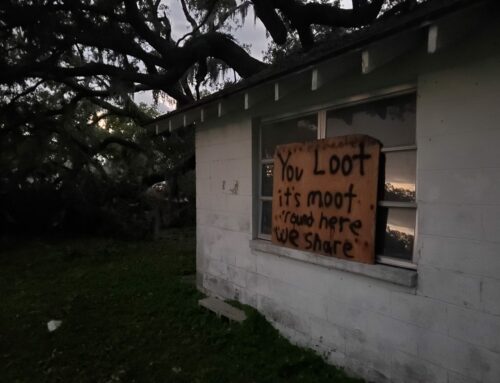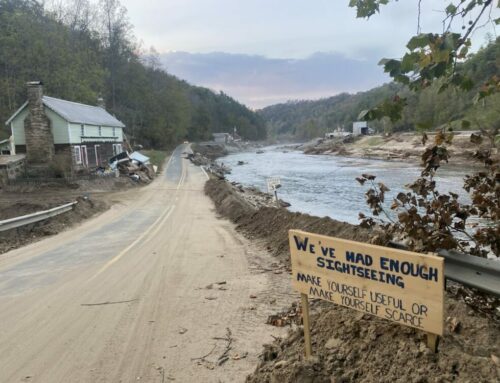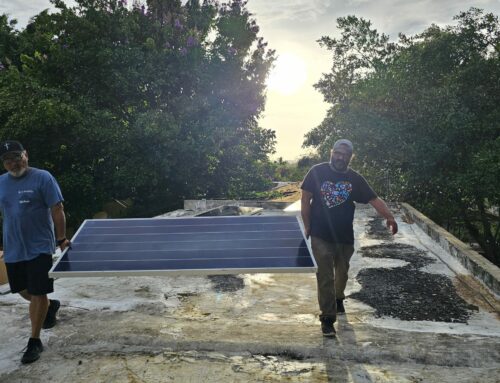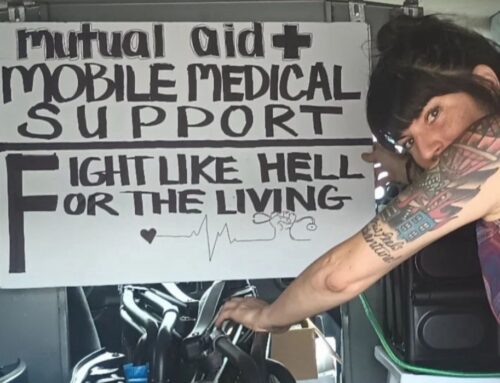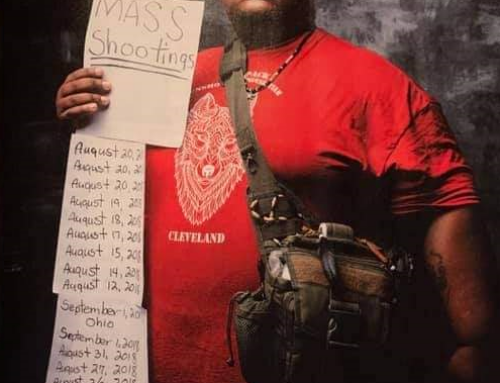We are still in the midst of hurricane and fire seasons, and already 2020 has been a historic year for the number, magnitude, and impact of disasters. Fires burn across the West Coast. Hurricanes have pounded into the Gulf Coast. The coronavirus pandemic continues to cause widespread loss, death, and economic turmoil unabated. Politically, the stalemate on any government relief is a disaster in itself, which still pales in comparison to the further erosion of democratic norms that inches us closer to authoritarianism. White supremacists in the streets and the halls of power criminalize and murder black bodies and protesters with impunity. There isn’t a moment to grieve the latest collective trauma before another is put before us. The overlapping of multiple disasters has quickly become the norm. And we know more impactful and deadlier crises and disasters are still to come.
We’ve glimpsed the future. Constant disaster, yes. But also an overflowing abundance of mutual aid projects and networks carrying us through and reimagining everything in a bid to not only save life as we know it on this planet, but to also usher in an era of climate justice, racial justice, economic justice, gender justice, environmental peace and justice, and indigenous sovereignty. It is quickly becoming clear to more and more people that these are the prerequisites for our collective survival.

This beautiful piece of art was created by Molly Costello
Amidst all this disaster, the defiance of hope is contagious and the news of different mutual aid efforts throughout the country is endless: porch wifi programs, community fridges, tool lending libraries, d.i.y. handwashing stations, mask distributions, pullover prevention events, pantry food delivery programs, herbal medicine care packages, eviction defense crews, bail funds. A wide web of ideas and experiences is growing; efforts are mimicked and refined, advice is passed through tended relationships. Each of our efforts shine light on our ability to receive and provide care effectively, horizontally, and collectively.
Whether it’s DSA SW Louisiana or Central Gulf Coast People’s Council providing mutual aid after hurricanes in the south, Iowa City Mutual Aid and Advocates for Social Justice responding with mutual aid to the derechos in the Midwest, groups like Symbiosis PDX, Willamette Action Collective, Mask Sonoma, and countless others engaging in mutual aid fire relief out west, or the literally thousands of coronavirus mutual aid projects flowering in countless directions everywhere – the mutual aid movement is meeting the moment.
The movement for mutual aid during disasters isn’t something Mutual Aid Disaster Relief invented. But we are working to act as a swiss-army knife for this growing movement of movements as it becomes more and more critical for our collective survival. We do this by supporting, uplifting, and working in partnership with mutual aid projects such as these, and also directly with disaster survivors who guide us on what, where, and how to best respond to their self-determined needs. Listening leads us to be different in different contexts. And we are learning so much as we walk these paths together.
People everywhere are deepening their roots in mutual aid. We specifically want to boost a couple online events: West Street Recovery will be celebrating three years of recovery and resilience building work after Hurricane Harvey by holding three panels about their work Oct. 16-17. More details here. And Symbiosis is doing a series of webinars on dual power called Bottom-Up Democracy: From Crisis to System Change Through Dual Power, recordings available here.
Internationally, too, mutual aid-based autonomous disaster relief efforts are growing even as governments repress their efforts. In rural northern Oaxaca, abandoned by the government after intense flooding, the community is coming together to meet their basic survival needs and building community kitchens. In the Philippines, the new anti-terrorism bill that supports the imprisionment of activists under an ambiguous definition of “terrorism” that can even include non-state sanctioned humanitarian aid efforts, is being challenged by a wide network of anarchists committed to their mutual aid projects and documented by comrades at Pirate Studios. In Lebanon, networks of grassroots response and relief efforts have bloomed after the recent explosion and throughout their revolution, as community members return to traditional practices of farming and meeting their communities’ needs amidst the country’s meat shortages, economic distress, and other crises. In Italy, and Sweden similar autonomous disaster response efforts are growing. And many inspiring, first-hand accounts of recent coronavirus mutual aid efforts around the world are documented in the recent book written by Colectiva Sembrar: Pandemic Solidarity.
What is ahead is daunting. It can be difficult to imagine how we’ll find the strength and energy to meet the looming crises of the pandemic in the cold of winter, the election season around the corner, and the other disasters beyond that. But we will find our way through whatever is ahead together, and if there’s one thing we can count on in disaster, it’s that we continually surprise ourselves with our ingenuity and tenacity.
Continue finding new ways to take care of each other, continue taking care of yourselves, and continue growing the relationships around you. Surrounded by storms, both literal and figurative, these actions are our compass, guiding us home.
